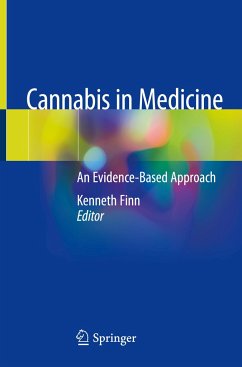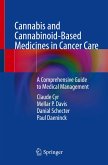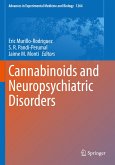Legalization of marijuana is becoming increasingly prominent in the United States and around the world. While there is some discussion of the relationship between marijuana and overall health, a comprehensive resource that outlines the medical literature for several organ systems, as well as non-medical societal effects, has yet to be seen. While all physicians strive to practice evidence-based medicine, many clinicians aren't aware of the facts surrounding cannabis and are guided by public opinion.
This first of its kind book is a comprehensive compilation of multiple facets of cannabis recommendation, use and effects from a variety of different perspectives. Comprised of chapters dedicated to separate fields of medicine, this evidence-based guide outlines the current data, or lack thereof, as well as the need for further study. The book begins with a general overview of the neurobiology and pharmacology of THC and hemp. It then delves into various medical concerns that plague specific disciplines of medicine such as psychiatry, cardiology, gastrointestinal and neurology, among others. The end of the book focuses on non-medical concerns such as public health and safety, driving impairment and legal implications.
Comprised of case studies and meta-analyses, Cannabis in Medicine: An Evidence-Based Approach provides clinicians with with a concise, evidence-based guide to various health concerns related to the use of marijuana. By addressing non-medical concerns, this book is also a useful resource for professionals working in the public health and legal fields.
This first of its kind book is a comprehensive compilation of multiple facets of cannabis recommendation, use and effects from a variety of different perspectives. Comprised of chapters dedicated to separate fields of medicine, this evidence-based guide outlines the current data, or lack thereof, as well as the need for further study. The book begins with a general overview of the neurobiology and pharmacology of THC and hemp. It then delves into various medical concerns that plague specific disciplines of medicine such as psychiatry, cardiology, gastrointestinal and neurology, among others. The end of the book focuses on non-medical concerns such as public health and safety, driving impairment and legal implications.
Comprised of case studies and meta-analyses, Cannabis in Medicine: An Evidence-Based Approach provides clinicians with with a concise, evidence-based guide to various health concerns related to the use of marijuana. By addressing non-medical concerns, this book is also a useful resource for professionals working in the public health and legal fields.








